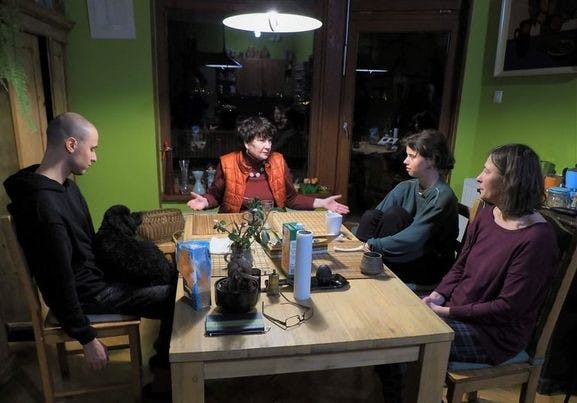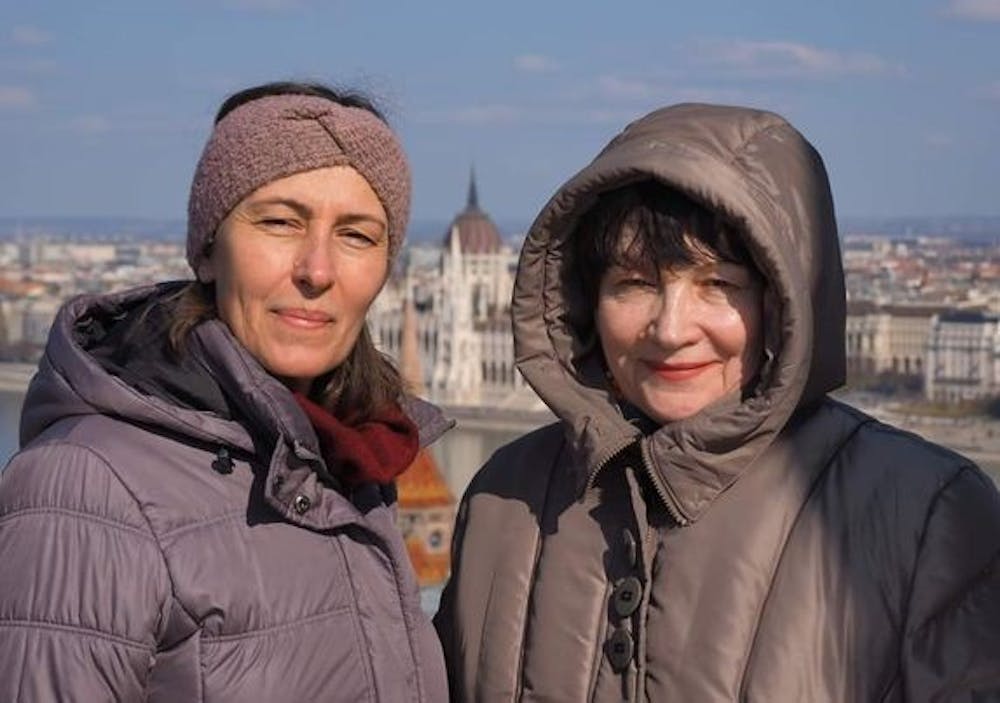Tatiana Nekriach left Kyiv, Ukraine, and fled to Germany almost two months ago.
The 74-year-old Ukrainian refugee just wants to go home.
“I miss my own bed,” she said. “I miss my window view. I miss my friends most of all. I miss the theater, which I adore. I miss the streets of Kyiv. I feel like a stranger here.”
But her return home depends on the military situation and her safety. She understands the danger that exists. She has many close friends in Kyiv she talks to practically every day who tell her not to dream of coming back before it’s safe.
“They say that it’s too early for me to go back,” Nekriach said. “But when I started sleeping, after some time, all my dreams are about home, Kyiv and my friends.”
Nekriach is just one of millions of Ukrainians displaced from their homes. As of April 27, about 5.3 million refugees have fled Ukraine since Russian forces invaded the country Feb. 24, according to the United Nations High Commissioner for Refugees’ Organizational Data Portal.
Nekriach’s 11-day journey to safety was not simple. She left with nothing but the clothes on her back and a suitcase containing necessary documents and medicine.
She is currently staying with her sister in Cologne, Germany. Nekriach, a professor in Ukraine, said her former students helped arrange her evacuation.
“What touched me most was the inordinate, mutual support,” she said. “Everybody tried to help everybody else.”
A local man taking his relatives to Budapest, Hungary, offered to drive Nekriach out of Ukraine. After five days, they reached the Hungarian border. They waited seven hours to cross.
From there, Nekriach traveled by train to stay with her niece in Prague, Czech Republic, who took her to Dresden, Germany. She finally arrived in Cologne by train, three countries and 11 long days after she left home.
“I don’t remember if I saw one smile throughout the whole journey,” she said.

When people on her journey recognized she was a Ukrainian refugee, they tried to be helpful. One person offered her chocolate. Another offered water. While another carried her suitcase.
Since arriving in Germany, Nekriach has had to completely change her daily routine. She said she misses being active, helping her Ph.D. students, writing lectures or translating works of fiction.
Friends and relatives have tried to help Nekriach however they can. They offer to take Nekriach to museums or cook for her, which she politely declines.
“Life is different for me now,” she said. “And this difference does not please me. I wish I could work, but not just doing anything — doing what I can do and what I love doing.
Ukrainians all speak about coming home when the war is over, Nekriach said.
“All of the Ukrainians believe that we will win,” she said.
A lot of refugees moved to Polish borders. Nekriach said she saw no signs of panic during her journey. The people were organized.
“The West kept saying that the war is imminent,” she said. “People understood that the threat was real.”
Nekriach said she is grateful to countries like Germany, Poland and the United States for supporting Ukraine. However, she continues to worry about her country every day.
“But strangely enough, I cannot even cry,” she said. “I think it could have been better if I could cry. I’m dry. I’m burnt out.”




